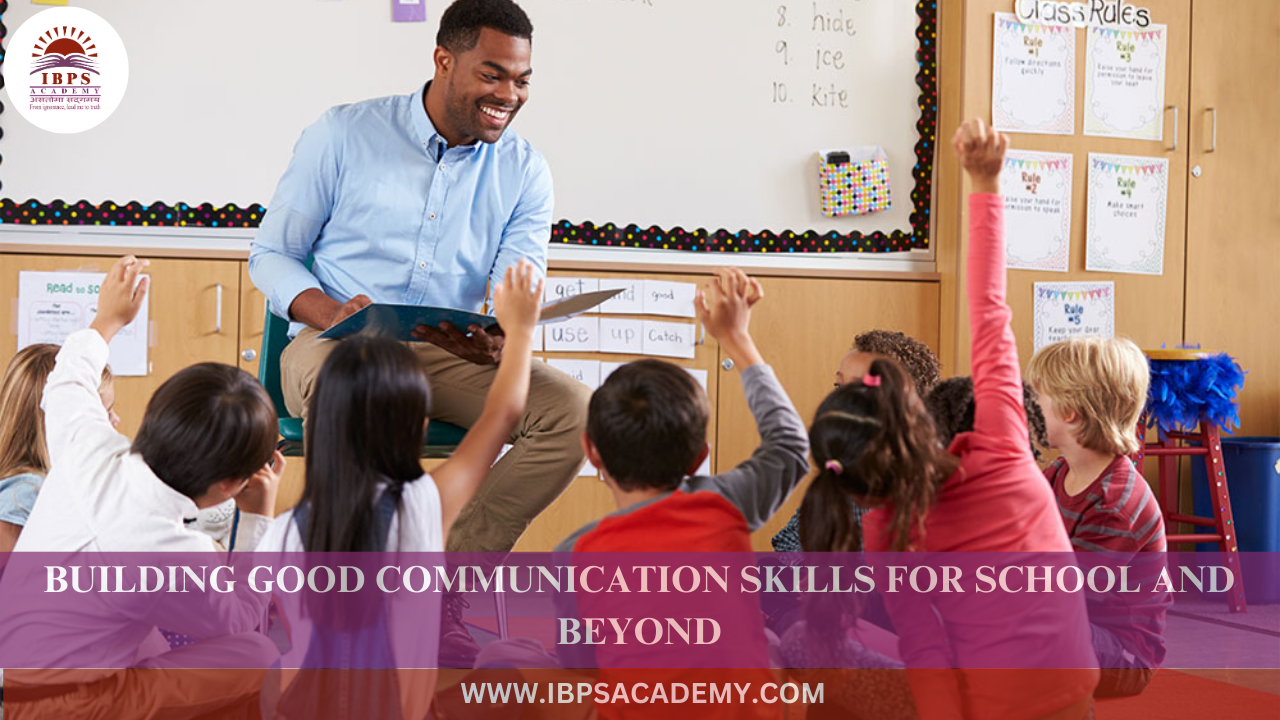BUILDING GOOD COMMUNICATION SKILLS FOR SCHOOL AND BEYOND
Published on: Feb 20, 2025
BUILDING GOOD COMMUNICATION SKILLS FOR SCHOOL AND BEYOND
Building good communication skills is essential for success in school and in many areas of life. It can help you express your ideas clearly, engage with others, and build stronger relationships. Here are some strategies you can use to improve your communication skills for school and beyond:
1. Active Listening
- Why it matters: Active listening is key to effective communication. It involves truly focusing on the speaker, understanding their message, and responding thoughtfully.
- How to improve:
- Maintain eye contact.
- Avoid interrupting.
- Ask clarifying questions if you don’t understand something.
- Reflect back what the other person is saying to show you understand.
2. Be Clear and Concise
- Why it matters: Whether you're giving a presentation, participating in class discussions, or writing, clarity is essential for others to understand you.
- How to improve:
- Think about what you want to say before you say it.
- Avoid using filler words (e.g., "um," "like," "you know").
- Use simple language when possible, especially for complex ideas.
- Organize your thoughts logically (beginning, middle, end).
3. Nonverbal Communication
- Why it matters: Nonverbal cues, like body language, facial expressions, and tone of voice, can convey just as much (if not more) than words themselves.
- How to improve:
- Pay attention to your posture and gestures.
- Use appropriate facial expressions to convey your emotions.
- Be aware of how your tone of voice might be interpreted.
- Avoid distractions (like checking your phone) during conversations.
4. Practice Empathy
- Why it matters: Understanding and being considerate of other people's feelings and perspectives makes you a more effective communicator, especially in group settings.
- How to improve:
- Put yourself in the other person's shoes.
- Acknowledge others’ emotions and opinions, even if you don't agree.
- Respond in a way that shows you care about their point of view.
5. Engage in Discussions and Public Speaking
- Why it matters: Regularly participating in discussions, debates, or speeches will help build your confidence and improve your ability to think on your feet.
- How to improve:
- Join clubs or organizations that require speaking or presenting (debate team, drama club, etc.).
- Take part in classroom discussions and ask questions.
- Practice public speaking, whether through school events or by recording yourself.
6. Read and Write Regularly
- Why it matters: Being able to express yourself well in writing is just as important as speaking. It helps in creating clear essays, emails, and even social media posts.
- How to improve:
- Write about topics that interest you, whether it’s for a class, a blog, or journaling.
- Read a variety of materials, including books, articles, and essays, to improve your vocabulary and understanding of different communication styles.
- Practice summarizing what you've read to ensure you understand it and can communicate it effectively.
7. Seek Feedback
- Why it matters: Constructive criticism helps you identify areas of improvement and track your progress over time.
- How to improve:
- Ask teachers, peers, or mentors for feedback on your communication skills.
- Be open to receiving feedback and use it to refine your skills.
- Practice self-reflection to understand what worked well and what didn’t.
8. Adapt to Different Audiences
- Why it matters: Tailoring your communication to fit different audiences (e.g., classmates, teachers, family, or professionals) ensures you are received appropriately.
- How to improve:
- Consider who you are speaking to and adjust your tone, vocabulary, and delivery accordingly.
- Use formal language in professional settings and more casual language with friends.
- Be mindful of cultural differences and communication styles.
9. Be Open-Minded and Respectful
- Why it matters: Being receptive to other people’s opinions, especially those different from your own, is key to effective communication and conflict resolution.
- How to improve:
- Avoid making snap judgments or assumptions.
- Respect differing viewpoints and remain calm in disagreements.
- Learn to manage conflict with diplomacy and tact.
10. Use Technology Wisely
- Why it matters: In today’s world, much communication happens through digital channels, so understanding how to communicate clearly and effectively through email, messaging apps, or social media is essential.
- How to improve:
- Be mindful of your tone when writing online to avoid misunderstandings.
- Double-check spelling and grammar before sending messages.
- Avoid overusing abbreviations or slang that might confuse others.
11. Practice Regularly
- Why it matters: Communication is a skill, and like any skill, the more you practice, the better you get.
- How to improve:
- Engage in conversations with people from different backgrounds.
- Volunteer for opportunities to speak or present.
- Challenge yourself to speak in front of a group, even if it’s just friends or family.
CONCLUSION
In conclusion, building good communication skills is essential for success both in school and in life. Whether it's through active listening, expressing ideas clearly, or understanding nonverbal cues, effective communication fosters stronger relationships, enhances learning, and opens doors to future opportunities. By practicing empathy, seeking feedback, and adapting to different audiences, you can continually improve your ability to connect with others. Remember, communication is a skill that can be developed over time with intention and practice. By focusing on these strategies, you can become a more confident and effective communicator, ready to thrive in any environment.


